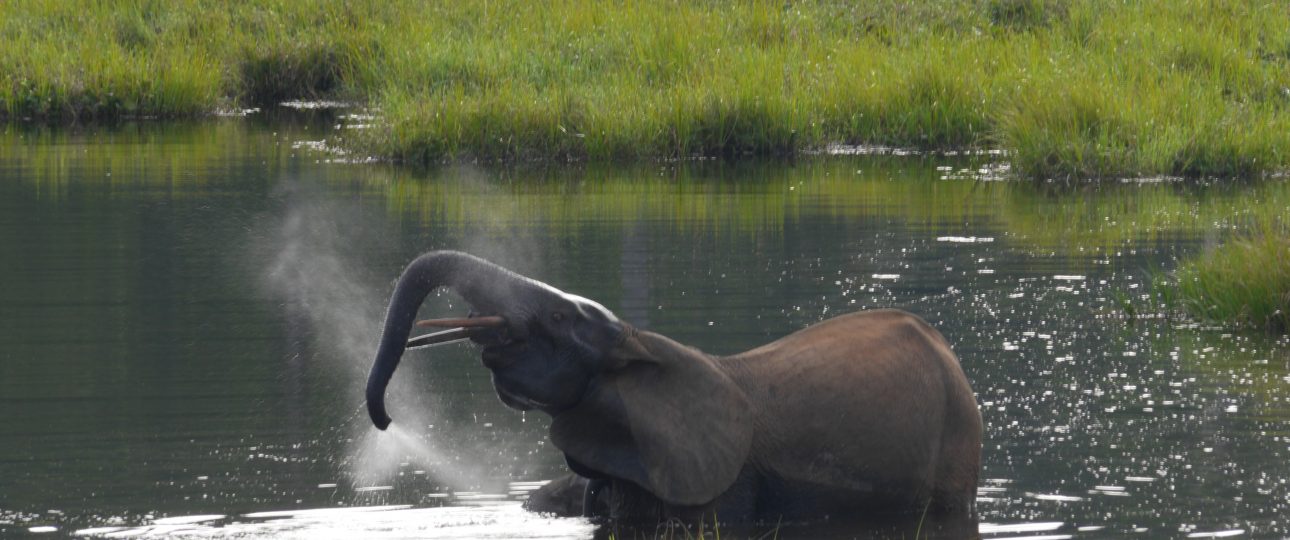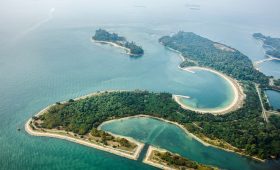Exploring Mbeli Bai in the Republic of Congo
Discovering Mbeli Bai
Mbeli Bai is a remarkable clearing located within the dense forests of the Republic of Congo. The name “Mbeli Bai” refers to the clear waters that characterize this unique ecosystem. It is a prime location for wildlife enthusiasts, offering a chance to observe a diverse range of animals in their natural environment.
Wildlife Diversity
Mbeli Bai is renowned for its rich biodiversity. Visitors can encounter African forest elephants, sitatunga, black-and-white colobus monkeys, and Congo clawless and spotted-necked otters. The area is also home to approximately 226 western lowland gorillas, living in groups of 2 to 16 individuals. Bird watchers will find a plethora of bird species to observe as well.
Practical Tips for Wildlife Viewing
- Plan your visit during the dry season, from May to September, for the best wildlife viewing opportunities.
- Engage a local guide who is familiar with the terrain and can provide insights into the wildlife and ecosystem.
- Equip yourself with binoculars, a camera with a telephoto lens, and sturdy walking shoes.
Getting There
Reaching Mbeli Bai requires careful planning. The nearest major airport is in Brazzaville, the capital of the Republic of Congo. From there, travelers can take a domestic flight to Impfondo, the closest town to Mbeli Bai. Once in Impfondo, transportation to the Bai can be arranged through local drivers or tour groups.
Best Time to Visit
The dry season, from May to September, is the ideal time to visit Mbeli Bai. During this period, the weather is more predictable, with milder temperatures and reduced rainfall. This season also aligns with the mating period for many species, offering unique wildlife observation opportunities.
Local Transportation
Transportation within Mbeli Bai is limited. The best way to explore is on foot, guided by an experienced local who can navigate the forest trails safely and provide valuable information about the flora and fauna.
Accommodation and Local Culture
Accommodation options near Mbeli Bai in Congo are very limited and primarily focused on eco-tourism. The main choice is Mbeli Camp, which offers rustic bungalows built on stilts with screened windows and basic facilities such as long-drop toilets and bucket showers. The camp is designed for wildlife observation, with platforms overlooking the forest clearing where visitors can spot elephants, gorillas, and other species. Meals are served communally at the camp and consist of simple, local dishes. There are no conventional hotels or restaurants in the area, as the location is remote and mainly visited by researchers and adventure travelers.
Respect for Local Culture
Visitors should respect the local culture and customs. The indigenous communities have a profound connection with the land and its wildlife. By showing respect and engaging with locals, travelers contribute to the preservation of their way of life and support sustainable tourism initiatives.
Conservation and Research
Since 1993, the Wildlife Conservation Society and the Ministry of Forest Economy and Environment have protected Mbeli Bai from human settlement. The area is a hub for animal research, particularly for studying gorillas. The Mbeli Bai Study, funded by various international zoos, has been monitoring gorillas since 1995, providing insights into their social structures and behaviors.
While Mbeli Bai offers an unparalleled wildlife experience, visitors should be aware of the challenges, such as limited transportation and basic accommodation facilities. However, for those willing to venture off the beaten path, Mbeli Bai promises an unforgettable encounter with nature.




